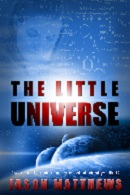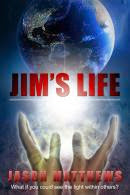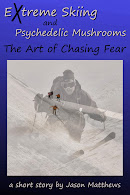On Webster’s tenth birthday, his father bought him a telescope. Mr. Adams saw it at a garage sale from a retiring professor. Although he knew nothing about telescopes, he bought it for his son on a whim. The professor gave him basic instruction and threw in a guide to astronomy. Mr. Adams took the telescope home, wrapped it in brown paper and set it up on a flat section of the roof.
Webster found it odd to be climbing out a window onto the roof with his parents to open one last present. When he unwrapped the telescope, he looked at it strangely, unaware of what it was.
Following the professor’s advice, Mr. Adams pointed the telescope toward the moon and adjusted the focus. He looked into it and laughed with astonishment, then invited Webster to take a peek. The boy put his eye to the piece. He saw the moon so closely that he could make out thousands of small circles etched into the landscape. He hadn’t known about impact craters from objects hitting the moon, nor had his father. Both were delighted. They stayed on the roof late into the night.
By twelve, Webster was an avid stargazer, though his father’s participation had dwindled. When he asked his father for money to buy a larger telescope, one with higher magnification, his father suggested that he earn the money himself. Webster did so, by doing yard work for neighbors. His parents watched the boy set up the new telescope, impressed with his devotion.
Webster stayed up very late on clear nights, becoming extremely familiar with nearby planets. He even constructed a mobile of the solar system, decorative balls that hung by strings from the ceiling in his room. He used it as his own calendar, adjusting the positions of the planets daily, marveling at their beauty and mystery.
His teachers complained that Webster fell asleep in class. His grades dropped.
Mr. Adams threatened to take the telescope away, but Mrs. Adams supported the boy’s hobby. She saw the creativity it had sparked in him. She argued to let the boy stargaze but under stricter limits.
Webster fought the idea of time constraints, since some of the most wonderful views happened during the early hours of the morning. He promised that the telescope would not get in the way of his grades and agreed to a tighter time limit, only occasionally sneaking out for special cosmic events.
At fifteen, Webster participated in a college astronomy course, which included field trips to a nearby observatory.
There he looked through huge telescopes that could see into the depth s of the universe. He became fascinated with things that couldn’t really be seen, things with wonderful names like black holes and antimatter. These entities had been theorized about but never proven. Webster decided that he wanted to know everything possible about the universe. There were so many questions. How did it begin? How far did it go? Did it have an end? To a young scientist, these questions loomed large. He set out to answer them.
Over the years, the answers to his questions eluded him, just like trying to see antimatter. The more he studied the universe, the more complex it remained. He realized he was just one person on a little planet drifting in a cosmic ocean without a guide. He grew up with few friends and few experiences.
He graduated with degrees in astronomy but chose not to teach it. Instead he went to work for an acquaintance in the field of artificial intelligence.
Light
Eventually, I realized Adams was reporting to someone. A man named Frank Maxwell was financing the project. The company, Maxwell Enterprises, was on my paychecks.
“Who is this Maxwell?” I asked.
“Frank? He’s been funding the project since the start,” Adams said.
“How come I’ve never met him?” Jim asked.
“He’s a busy man,” Adams said. “He has other business to manage, profit-making businesses.” His reluctance to talk about it made me even more curious about the man who was paying my wages.
Adams said no more, but he placed a new photo on his desk. Rose’s photo was on the left. The new one went on the right. The face in the picture was that of a lovely young lady, and for some reason I had trouble recognizing her from the halls of Webster’s home, the girl who had caught my attention on that first glance.
“She’s a cutie,” I said.
“She’s more than that,” Adams replied. “She’s my daughter, Whitney.”
“Oh.”
Our tests continued until one afternoon, when Adams decided the simulation was ready. Late in the day, we connected the lines to the huge hydrogen tanks, the final step toward making Rose’s idea a reality.
It had been nearly three months since I began working there. Spring was in full bloom.
The next morning, I felt a wall of tension around Adams. He didn’t speak to me in the truck on the way to work. Instead, he mumbled to himself and to Rose as he went over every item in his head. At the lab, he double-checked every piece of equipment. I spun around in my swivel chair and chatted with Jim. Jim said he sensed the tension too, though I couldn’t imagine how. Minutes turned into hours.
I waited patiently for Adams to do whatever he thought was necessary. For some reason, I didn’t feel especially nervous or excited, mostly bored, as I had been for the past several weeks. As we went over our checklist of final preparations for the third time, I still had the feeling something wouldn’t work, that there was no way the simulation was going to happen. I never mentioned it to Adams, but I couldn’t shake my deeply rooted pessimism, even as I sat yards away from an electromagnetic field that was about to experience an atomic injection of immense proportions.
“Jim, prepare the sub-particle setting for initial hydrogen release,” Adams finally said. I thought I heard a bit of fear in his voice.
“Check,” Jim responded.
“What’s the rate on that setting?” Adams asked.
“At standard rate, seventeen trillion units per second.”
“Are the molecules in the prep chamber still at critical mass?”
“Yes.”
“Then we’re ready, unless there’s something I’ve forgotten,” Adams said, looking around.
I held up the dark glasses. “Do we need these?” Adams had brought them for the explosion of light that he was expecting across the monitors.
“Right. We’re going to need those,” he said. We put them on.
“Anything else?”
“Should we say a prayer or something?” I asked.
“If you would like to.”
I took off the glasses, closed my eyes and put my hands to my face in prayer. “How about, God... please, please help us do this.”
“Sounds like something Rose would approve of,” Adams said. “Jim, I do believe we’re ready. You can release hydrogen molecules at any time.”
“Release in five seconds,” Jim said. I put the glasses back on. “Four... three... two... one...”
That was when I realized I was nervous. Something changed in that moment of time as I stood in that dark room looking at black monitors and wearing sunglasses while a nuclear event was taking place yards away. Those jokes from Adams about a mishap destroying the planet must have gotten to me. It was either that or the thought of Rose’s spirit in the room that made the skin on my arms break out in goose bumps.
Even behind the silly shades, I could see the anticipation and anxiety written in the lines of his face. This event defined a decade of work, from Rose’s theorizing, to planning, to convincing Maxwell and Adams it could be done. Then after her death, the thousands of hours of bringing all the pieces together.
I wiped the sweat from my palms onto my pants. Adams gripped the back of his swivel chair as he stood behind it, pressing his thumbs into the fabric. His stare remained locked on the blank monitors. I felt the tension getting worse, and I wanted to say something witty to break the silence, but nothing came to mind. Instead, a calm peace spread over us from the dark screens. I could hear my breathing and feel my heartbeat over the sounds of anything else. The silence made me think that something wasn’t working. I looked at the control panel and noticed that Jim’s green light was glowing as brightly as I had ever seen it, as if at any moment he would explode from thinking. I figured there must be a glitch, and I expected Adams to take off his glasses in frustration and start complaining to Rose about what went wrong.
Then suddenly, a tiny spot of light began to show on the main monitor.
As soon as I could focus on it, it flashed into a brilliant explosion across all the monitors. Then it was dark again. Jim’s light dimmed to a dull green glow. I looked to Adams for an explanation. He started laughing out loud, staring at the screens. The flash had blinded me after it dissipated. Now I saw that tiny dots of light remained. Those spots of white emerged from the center of the main monitor and began spreading out and getting larger.
“Yes!” Adams cried.
“Yes, what?” I asked.
“Everything okay, Jim?” he asked, taking off his glasses.
“I think so,” Jim said. “I think it’s working.”
The screens remained primarily dark, but small areas of glowing light were visible.
“There!” Adams said. “Let’s get a closer shot from Monitor One.”
As the camera zoomed in, I could make out what looked like glowing gas. The light was bright yet transparent. It floated outward and settled into swirls with other bits and pieces. My hand made swirling motions, mimicking the action on the monitors.
I turned to Adams. “What is that stuff?”
“Matter,” Adams said, smiling broadly. “Pure matter.”
It didn’t look like matter. It looked like a bundle of glowing gas. As the shot went closer in toward the light, I could see big blobs and little blobs, each pulsing with tiny specks of light.
“Chemical analysis of the matter, Jim?” Adams asked, nervously spinning the chair in front of him.
“Hydrogen. Entirely hydrogen.”
“Perfect!” Adams said, rubbing his hands together.
“It’s just gas,” I said. “You took hydrogen from one source and merely placed it into another.”
We watched the images of the glowing gas blobs become larger. They spread out and intermingled with other blobs of light. It was mildly intriguing.
We stood motionless for several minutes, just watching.
Then Adams broke the trance. “See, Jon. These lights number in the millions. Most are locked in orbits with others.”
As I looked more closely at the tiny areas of light, I suddenly realized they looked like galaxies.
A shiver traveled down my spine. A tiny universe had been created before my eyes. Within minutes, dozens of different masses sparkled against the darkness on the screens. Each mass hovered about on its own, tracked by a different camera within the cavity of the building and displayed on a monitor. Our dimly lit lab room was filled with light from these newborn galaxies.
Adams laughed again. “Jim, zoom Camera Two in closer.”
Monitor Two revealed a cluster of stars, tons of them surrounded by extraordinary colors and formations. It was like a fountain of magic dust, reminding me of the pictures in the hallway that I passed by each day.
“What’s happening here?” I asked. “This doesn’t look like gas anymore.”
“It’s a nebula!” Adams cried out, raising his arms to the ceiling in victory. “We have a nebula! Slow down the rate, Jim. Take it down to a crawl.”
The twisting and moving slowed down, halting the lights. The monitors displayed dozens of galaxies frozen in time. Adams, mystified by his creation, stared at the screens. Each one showcased a galaxy of brilliant lights and amazing colors. He laughed in delight.
“We did it,” he said, shaking me. “We really did it!”
I looked around at the monitors into a vast horizon of heavens, feeling like I was on a space station in the center of the universe.
“I still don’t understand,” I said. “How did this come from a little atomic matter?”
Adams sat in his chair, calmed himself, and stared at the monitors in a dreamy way as if the full understanding of the invention had just come to him.
“When you analyze things that are extremely small, like quarks and elements of atoms... and when you compare them to things that are extremely large, like stars and galaxies... they’re oddly similar. Physical size may be one of the great mysteries of life.”
Then it became clear to me. I found myself saying out loud, “We have a model of a universe. Not just a plastic model, but a living, breathing, real universe right in front of us.”
All that time in the making, I never really understood the significance of what he was attempting until that moment.
“What’s more,” Adams added, “we’ve just witnessed The Big Bang.”
“Creation has happened! It’s been a long road, but we arrived today. Rose, you were right as usual. Portal from ct over zero at parsec y! If I die tomorrow, I’ll be happy. Doubtful to sleep tonight, the rush of it all is still in me. Watching light come out of nothing... watching the birth of stars! It was everything I had hoped for and more.”
- From p. 23 of Webster’s journal.
Chapters 7, 8 coming Thursday, March 4th



















